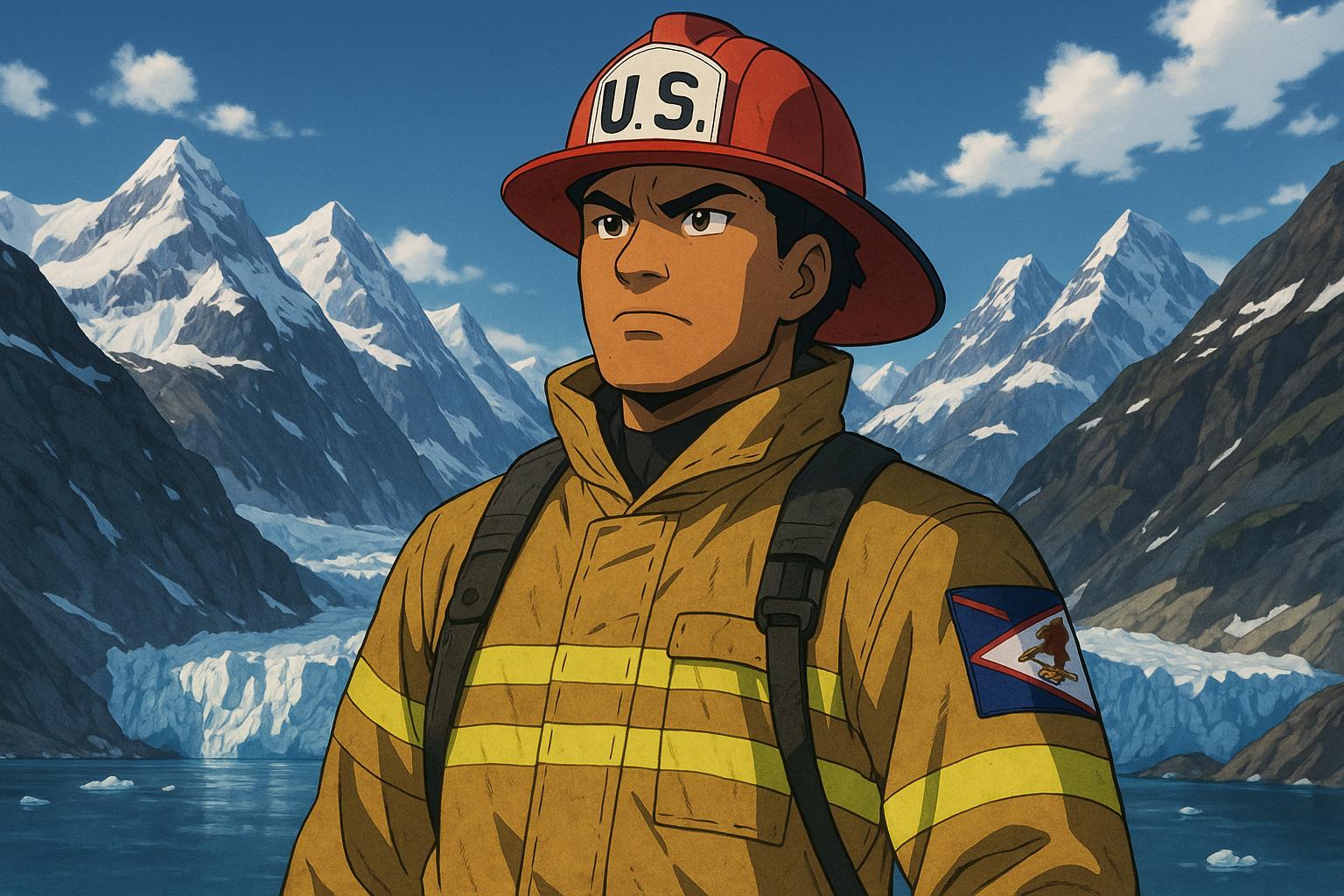Squeezed between glacier-studded mountains and Alaska's Prince William Sound lies Whittier, a small cruise-ship stop accessible only by a single road passing through a long, narrow tunnel shared with trains. With its population of just 260, nearly all residents of this unique town share a 14-story condominium building. Yet, despite its size and isolation, Whittier has become a focal point for a complex legal battle regarding citizenship and voting rights, particularly for those born in U.S. territories.
In an unprecedented move, Alaska prosecutors have brought felony charges against 11 residents, most of whom are related, for allegedly falsely claiming U.S. citizenship while registering to vote. These individuals hail from American Samoa, the only U.S. territory where individuals born on its soil do not automatically receive citizenship, a status afforded to those born in other territories and states. Instead, American Samoans are classified as “U.S. nationals,” a designation that grants them certain rights, such as eligibility for military service and U.S. passports, but restricts their ability to vote in federal elections.
Michael Pese, a Whittier firefighter among the charged individuals, expressed his frustration, stating, “To me, I’m an American. I was born an American on U.S. soil.” His assertion is rooted in the long-standing debate about American Samoa's status, which has persisted since the island became a U.S. territory over 125 years ago.
The confusion surrounding voting rights is not solely confined to Alaska. In Oregon, for instance, nearly 200 American Samoans were mistakenly registered to vote under the state’s motor-voter law, with some exercising their voting rights before officials clarified that they lacked the necessary citizenship. Similarly, in Hawaii, Sai Timoteo, who ran for the state Legislature in 2018, was unaware that her status as a U.S. national precluded her from holding office or voting. Such incidents underscore a systemic confusion about the legal rights of American Samoans, prompting calls for clearer voter registration processes.
The legal proceedings in Alaska highlight a broader national conversation about birthright citizenship, accelerated in part by former President Donald Trump’s contentious efforts to redefine the concept through executive orders aiming to restrict citizenship for children born on U.S. soil to non-citizen parents. While courts have blocked these orders, the foundational question remains: Is birthright citizenship guaranteed to all individuals born on U.S. territory?
The recent case in Whittier was initiated when Tupe Smith, Michael Pese's wife, became involved in local politics after volunteering at a community school heavily attended by American Samoan children. After being elected to the school board, Smith was arrested for allegedly misrepresenting her citizenship on voter registration forms. Her lawyer argues that there was no intent to deceive, stressing that when Smith checked the box affirming her as a U.S. citizen, she was following election workers' instructions rather than attempting to mislead.
Critics of the prosecution, including Neil Weare, co-founder of the Right to Democracy Project, suggest that the targeting of individuals like Smith reflects a broader trend of criminalising electoral mistakes, particularly against groups perceived as political outsiders. Weare’s analysis proposes that the actions taken against these American Samoans serve as a cautionary tale for other communities navigating the complexities of voting rights, especially within U.S. territories.
American Samoa's citizenship quandary extends back to the 19th century when U.S. interests in the South Pacific led to its designation as a territory without full constitutional rights. This historical context raises questions about the lingering colonial ideologies that impact the rights of residents today. Currently, efforts to clarify or amend citizenship status for American Samoans appear stalled, as many locals express a desire to preserve their cultural identity and legal autonomy, fearing that automatic citizenship could jeopardise their way of life.
The case also aligns with a growing trend across the United States, where non-citizens can participate in local elections in jurisdictions such as San Francisco and Washington, D.C. However, such developments only highlight the ongoing disparities faced by those in U.S. territories like American Samoa, where most residents cannot engage fully in the democratic process.
This legal saga in Whittier serves as a potent reminder of the intersections between geography, history, and political rights. As discussions continue around citizenship and voting access, it calls into urgent question the meaning of what it truly means to be American in the context of longstanding colonial legacies and citizenship definitions.
📌 Reference Map:
- Paragraph 1 – [1], [2]
- Paragraph 2 – [1], [3], [4]
- Paragraph 3 – [2], [3], [6]
- Paragraph 4 – [1], [5]
- Paragraph 5 – [2], [5]
- Paragraph 6 – [1], [7]
- Paragraph 7 – [2], [3], [6]
Source: Noah Wire Services
